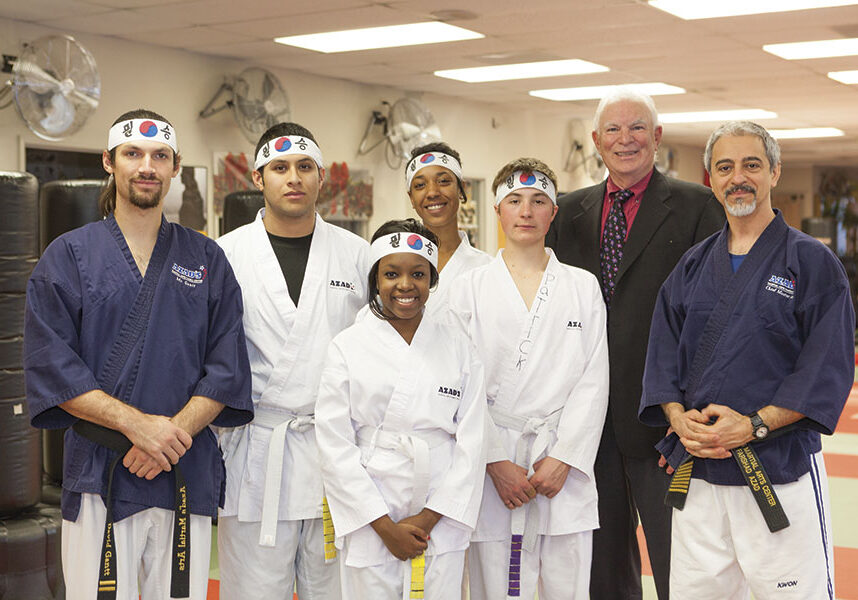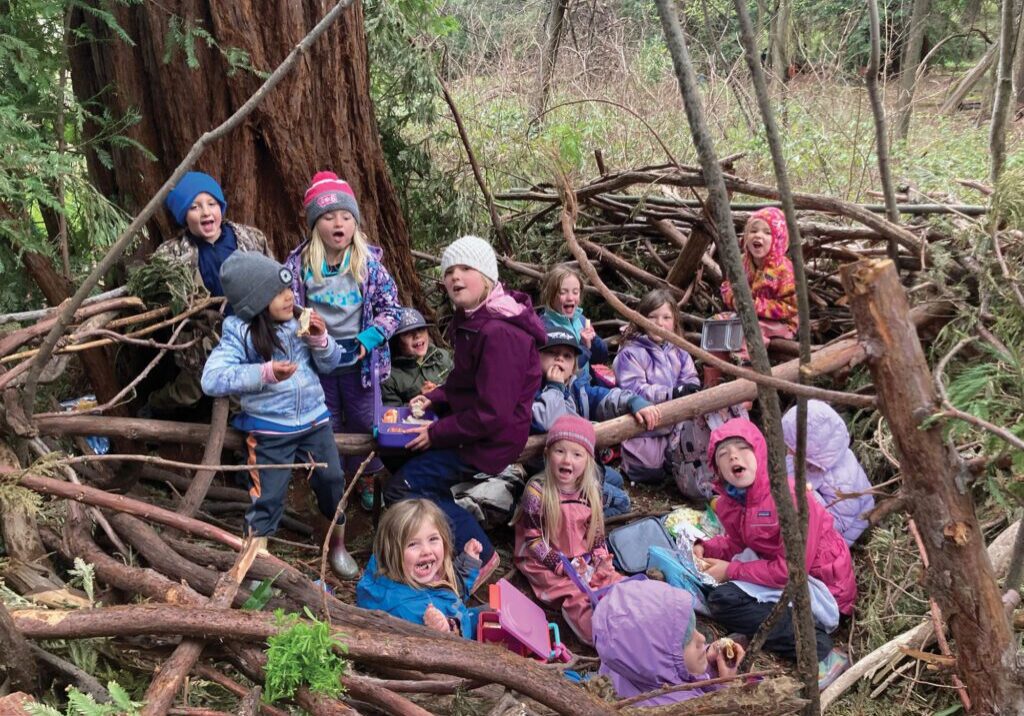These days my teenage daughter cheerfully refers to herself as an ambivert, meaning a person who possesses both introvert and extrovert qualities. But this was not always the case. When she was an infant and a toddler, she shied away from strangers, did not embrace new situations, and had trouble making transitions. These were all signs of being introverted, and also of being a highly sensitive person. She only adapted to anything new, whether food, people or situations, at her own pace.
While temperament is typically consistent for a lifetime, parents can make a difference in helping introverted and sensitive children acclimate themselves to the ways of the world. Following are some common descriptions used to identify different temperaments. The estimated percentage ranges come from recent expert opinions. Where do you and your children fit in? Remember, knowledge is always power, especially when it comes to our family dynamics and our children’s development.
Extroverts are typically outgoing, gregarious people
Extroversion means the act of directing one’s attention outward or to things outside the self. Extroverts typically prefer the external environment over exploring their own thoughts and feelings.
Estimated percent of population: 50-74%
Introvert typically prefer their own company or one-on-one interactions
Introverts are not always shy, but they prefer their own thoughts and feelings, or the company of just a few people rather than a crowd.
Estimated percent of population: 33-50%
Ambiverts have the qualities of both extroverts and introverts
Estimated percent of population: 38-66%
Highly Sensitive People (HSP) are typically creative, intuitive and observant
According to Susan Cain, author of the book Quiet, The Power Of Introverts In A World That Can’t Stop Talking, an HSP processes information about the emotional and physical environment deeply and tends towards philosophical and spiritual thinking rather than materialistic and hedonistic thinking. The HSP observes carefully before taking risks; loves music, nature, art and physical beauty and is highly empathic.
Estimated percent of population: 15-20%

Living in an extroverted world
According to Cain, we live in a world that embraces and praises extroverts over introvets. Because of this a child who is naturally introverted and highly sensitive might have a difficult time fitting in and finding a comfortable tribe. Some parents unwittingly pressure their children to be more social out of a fear of their being left out. An extrovert parent may not fully understand the temperament of an introvert child and may pressure a child to change behavior without considering the child’s point of view.
Relax and don’t judge your children’s temperament
The first thing parents need to do when it comes to identifying their own and their children’s temperaments is relax. Temperament is not something that typically changes throughout a person’s life, so it is important to let go of judgements about this natural characteristic.
Identifying the temperament of each person in your family can help you increase family harmony and better support each child in interacting with the world. Sure, you may need to invest some time and research into familiarizing yourself with points of view that are different from your own, especially within your own family. But as a payoff you will be able to help your introverted and highly sensitive children better navigate the world.
Temperament is about how each person feels naturally, not merely about how they behave. Practice accepting each person for who they feel they are. Try to better understand the point of view of each family member by listening to what they want you to understand without trying to change anyone. More than any other desire, people usually wish to be seen, understood and accepted for who they truly are.
How parents can help introverted and HSP children
Babies need what they need. If you have a fussy, sensitive baby, try to give her what she needs without expecting her to be a babbling, jovial baby. Pay close attention to your baby’s signals and learn how to respond by trusting your own instincts and applying reasonable trial and error. And don’t be surprised when your baby becomes more bouncy and bubbly once you start paying closer attention to what she needs rather than paying so much attention to what others project.
Toddlers are born to stretch and explore. Your introverted and highly sensitive toddler may not be as adventurous as others, but don’t let this disappoint you. Be loving and encouraging and celebrate even the smallest of milestones with glee. Sensitives often reserve their hesitation for the company of strangers and may act like any other toddler while surrounded by loved ones. However, be careful not to confuse unmet milestones with introversion or sensitivity. If you have a milestone concern, be sure to discuss it with your physician.
Pre-schoolers participate in structured activities. If getting your introverted and sensitive child through the door of the school is a challenge, try taking baby steps. First, walk your child all the way into the classroom. The next day, stop at the door. The next day, stop down the hall a bit. You get the picture. If this strategy isn’t working, enlist the help of a welcoming, familiar presence to ease the way.
Elementary-schoolers are finding friends and co-creating together. Recess might be torture for your little introvert or HSP, unless he can connect with some children in his class who share his temperament. Consult with the teacher or playground monitor to enlist assistance and brainstorm ideas. Many children at this age play group imagination games during recess rather than sports and other more physical games. Some kids may switch back and forth between groups depending on how they feel. Encourage your child to find the friends who are doing activities he enjoys most each day.
Middle-schoolers are becoming aware of who they are in the social hierarchy. Bully-proofing your introverted and highly sensitive child is important, so don’t hesitate to discuss and even role-play how to handle socially aggressive situations. Bullying happens, and though it’s unclear whether introverts and highly sensitive children are bullied more, they certainly may take negative treatment more to heart. Above all, encourage your child to progress socially at her own pace, regardless of how other children are behaving.
High-schoolers need to use their aptitudes and skills. By the time your introvert or HSP gets to high school, she will definitely want to find her tribes. Luckily many introverted options are usually available at the high-school level. Consider activities like fine arts, creative writing, martial arts, and robotics. Some introverts may even enjoy choir, band, and theater. As for sports, your sensitive child may prefer sports with less physical contact like swimming, softball, baseball, track, tennis or dance. Don’t be concerned if your child does not immediately find peer groups in high school. A little bit of shuffling of friend and activity choices is common when kids are learning to be more clear about what they like and want.
College-aged kids are practicing becoming adults. Your college-aged sensitive needs balance. He may embrace the usual college social situations like class rites of passage, fraternity rush, and themed dances, but find he needs more down time between social events than his peers. Try to choose a college that honors the needs of more introverted students. Your student would likely prefer one roommate to three, a large library with designated quiet rooms and lots of nooks and crannies for hiding away, and scholarly programs that honor the way he learns best. So when it comes to selecting a suitable school, don’t settle for anything less than what your student craves.
Posted in: Health & Nutrition, Youth & Teen
Comment Policy: All viewpoints are welcome, but comments should remain relevant. Personal attacks, profanity, and aggressive behavior are not allowed. No spam, advertising, or promoting of products/services. Please, only use your real name and limit the amount of links submitted in your comment.
You Might Also Like...

Transitioning Into Adulthood
Preparing Teens for the Coming of Age – Wildflower Open Classroom’s Adolescent Program (WOCAP) Rites of Passage are Important What are the rites of passage for America’s youth today? And […]

When Someone Believes, Possibilities Open: Solid as a Rock – Azad’s Martial Arts’ Rock Solid Teens Program
What does it take to make a significant change in one’s life, to go from struggle to a place of confidence? Farshad Azad believes it’s a combination of factors and […]

Managing Yourself in Time
One of my mentors, Bill Truby, taught me the following: “We don’t need to learn time management because we simply can’t manage time.” He said, “The reality is that there […]

Guilt Free Goodie Bags For The Birthday Guests
I’ve been “that” mom, a convenience junkie who puts a handful of throwaway toys and candy in a colorful plastic sack and calls it a goodie bag. But here’s a […]



